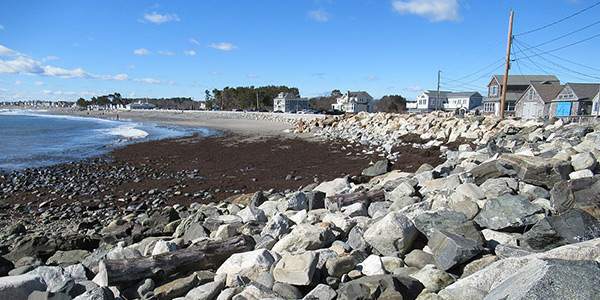A proposed competitive clean energy solicitation in New Hampshire could spur offshore wind construction in the Gulf of Maine by 2026, state Sen. David Watters (D) said Monday.
Watters cosponsored a bill (SB 151) that would establish a state procurement plan for 800 MW of renewable energy, with at least 600 MW dedicated to OSW capacity.
The 800-MW solicitation is “about right” for New Hampshire and the capacity of utilities to use the electricity, Watters said in a Senate Energy and Natural Resources committee hearing on the bill. Under the bill’s procurement timeline, the state would issue a solicitation by June 30, 2022, with the expectation that electric distribution companies would enter 15- to 30-year contracts for the power by June 30, 2023.
The proposed size and timing of the solicitation, however, seemed large and aggressive to Robert Furino, director of energy contracts at Unitil subsidiary Unitil Service.
“If the state were to sponsor these contracts, and we were to sign 600 MW to 800 MW of offshore wind, for example, our share would lead to covering 20% to 30% of our peak requirements and 40% to close to 60% of our annual energy requirements, based on 2019 actual consumption of our customer base,” Furino said in his hearing testimony.
Unitil Service has electric customers in southeastern New Hampshire, which has about 18 miles of Atlantic coastline.
Despite his hesitation about the size of the procurement, Furino said a state-sponsored solicitation is a necessary incentive for the OSW market.
“I don’t see [OSW investments] coming without contracts,” he said. “There’s some onshore wind that’s been contracted just by the market, and I don’t know that you would see that forthcoming in an offshore market.”
The bill allows for joint solicitations with other New England states, a measure Furino said makes sense for a state the size of New Hampshire.
“We were involved in one multistate procurement [with] Connecticut, Massachusetts and Rhode Island,” he said. “I do think it would reduce the valuation burden and hopefully increase the market interest.”
Generator Concerns
The New England Power Generators Association opposes long-term contracts that single out and incentivize specific resources, Daniel Collins, NEPGA director of government affairs, said in his testimony. The group represents electric power generators that compete in ISO-NE wholesale markets.
The contracts proposed in the bill would distort market pricing and undermine the commercial viability of competitive resources that do not receive a guaranteed revenue stream outside the markets, he said.
Market-based solutions, he added, offer a “better path” to meeting the state’s energy goals than putting the cost and investments of long-term contracts onto ratepayers.
Workforce Solutions
The state’s solicitations, as designed in the bill, would require bidders to prepare plans for project labor agreements and use of skilled labor, including opportunities for apprenticeship training or workforce development recognized by the state.
The BlueGreen Alliance supports those labor and workforce development measures, according to Rebecca Newberry, Northeast regional program manager for the alliance.
“Apprenticeship utilization can reduce the risk of cost overruns for substandard work, while project labor agreements provide comprehensive guidance for large projects,” Newberry said in her testimony.
The alliance, she said, recommends adding local hire criteria to bid requirements to help create jobs and generate economic activities. In addition, language in the bill should place priority on “projects that will source a high percentage of components from U.S.-based manufacturers,” she said.



